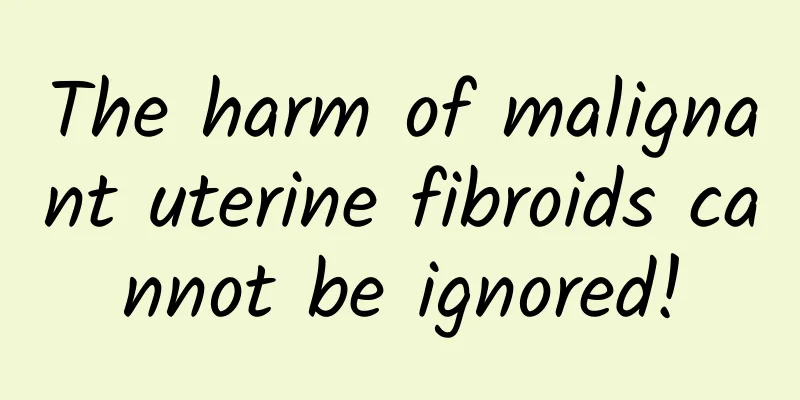What is the correct nursing measure for pelvic peritonitis?

|
Pelvic peritonitis often occurs in women who are sexually active and menstruating. It rarely occurs in women before menarche, after menopause or unmarried people. If pelvic peritonitis occurs, it is often the spread of inflammation in adjacent organs. It can be divided into acute and chronic according to its course of disease and clinical manifestations. The following is an introduction to the nursing measures for pelvic peritonitis. What are the nursing measures for pelvic peritonitis: 1. Eliminate all routes of infection, keep the perineum clean and dry, wash the vulva with clean water every night, and use a dedicated basin for each person. Do not use your hands to wash the vagina, and do not use hot water or soap to wash the vulva. In pelvic peritonitis, the amount of leucorrhea is large and sticky, so change underwear frequently and do not wear tight or synthetic underwear. 2. If there is vaginal bleeding during menstruation, after abortion, and after gynecological surgery such as IUD insertion and removal, you must refrain from sexual intercourse, swimming, tub baths, and saunas. You must change sanitary napkins frequently. As this will reduce the body's resistance, pathogenic bacteria can easily take advantage of the opportunity to enter and cause infection. 3. Patients diagnosed with acute or subacute pelvic peritonitis must follow the doctor's advice and actively cooperate with the treatment. Patients must rest in bed or take a semi-recumbent position to facilitate the localization of inflammation and the discharge of secretions. Patients with chronic pelvic peritonitis should not be overworked, and should combine work and rest and moderate sexual intercourse to avoid worsening symptoms. 4. Fever patients usually sweat a lot when the fever subsides. They should pay attention to keeping warm and keeping the body dry. Change clothes after sweating and avoid air conditioning or direct convection wind. 5. Pay attention to the amount, quality, color and taste of leucorrhea. If the amount of leucorrhea is large, the color is yellow and thick, and it has a foul smell, it means that the condition is more serious. If the leucorrhea changes from yellow to white (or light yellow), the amount changes from large to small, and the taste tends to be normal (slightly sour), it means that the condition has improved. 6. Patients with acute or subacute pelvic peritonitis should maintain smooth bowel movements and observe the characteristics of their stools. If pus is seen in the stool or there is a feeling of urgency and heaviness in the abdomen, they should go to the hospital immediately to prevent the pelvic abscess from rupturing the intestinal wall and causing acute peritonitis. 7. Patients with pelvic peritonitis should pay attention to diet and nutrition. During the fever period, it is advisable to eat light and easily digestible food. Patients with high fever and body fluid damage can be given pear juice, apple juice, watermelon juice, etc., but they cannot be drunk after ice. Patients with yellow, large, and thick vaginal discharge are damp-heat syndrome, and should avoid eating fried, greasy, and spicy foods. Patients with lower abdominal cold pain, fear of cold, and back pain are cold-stagnation and qi-stagnation type, and can be given warm foods such as ginger soup, brown sugar water, and cinnamon meat. Those with five-heart heat and back pain are mostly kidney yin deficiency, and can eat meat and eggs, which are bloody and emotional products to nourish and strengthen. 8. Nursing measures for pelvic peritonitis also include: Some patients suffer from chronic pelvic peritonitis and take antibiotics on their own when they feel a little uncomfortable. Long-term use will cause vaginal flora disorder, causing increased vaginal secretions and white bean curd-like leucorrhea. At this time, you should go to the hospital immediately to rule out candidal vaginitis. |
<<: Nursing measures for pelvic peritonitis after surgery
>>: What should be paid attention to when treating pelvic peritonitis
Recommend
What can I eat to get rid of uterine fibroids? What can I eat to get rid of uterine fibroids?
Uterine fibroids are common benign tumors in gyne...
What are the dangers of pelvic effusion in women?
Pelvic effusion is one of the most common disease...
Side effects of embolization therapy for adenomyosis
Embolization treatment for adenomyosis may cause ...
Criteria for determining menopause in women
During a woman's life, she will enter old age...
How to treat cervical erosion, various clinical methods for treating cervical erosion
Many women who have had sex will have cervical er...
Does polycystic ovary cause severe dysmenorrhea?
Does polycystic ovary cause severe dysmenorrhea? ...
What are the dietary health care for pelvic peritonitis
Nowadays, many women are increasingly pursuing a ...
What are the treatments for cervical warts?
For some serious diseases, we should also provide...
Why does the weight loss effect get worse when doing the same exercise over and over again? Expert Answers
Many fitness experts have a set of exercise menus...
How to prevent recurrence of cervical warts
Cervical warts are a common infectious reproducti...
Experts introduce several precautions for vulvar leukoplakia
Understanding the precautions of vulvar leukoplak...
What to eat to enhance ovarian function? 4 kinds of ovarian maintenance foods you can eat more
Ovarian maintenance is very important for women. ...
8 tips for losing weight! Stay healthy and don't gain weight
An effective and healthy way to lose weight is to...
Eating strawberries can help you lose weight, "this" nutrient helps burn fat! Nutritionist reveals: Eat 16 pills a day and lose weight easily
Strawberry season is here. Strawberries are a del...
Precautions and treatment after artificial abortion
What should you pay attention to and how to regul...









